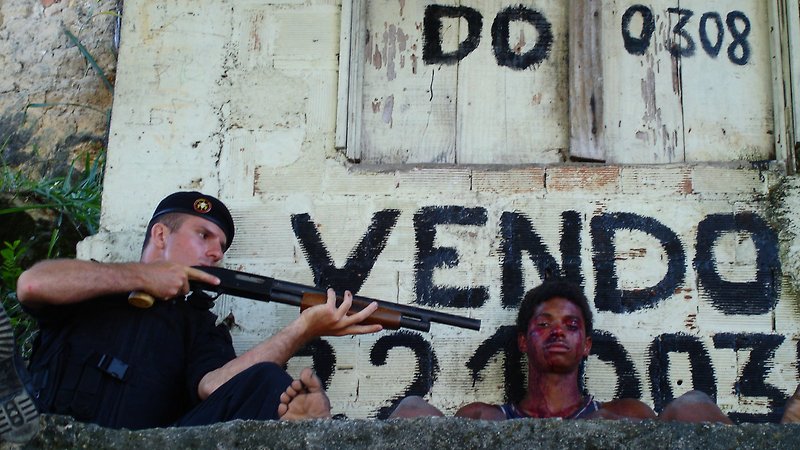The biggest hit in Brazil since City of God, and controversial winner of the Best Film Award at the Berlin Film Festival this year, Elite Squad is an incendiary vision of police violence in Rio.

Last year, in Rio alone, the police officially killed more than 1200 people.
Screened as part of NZIFF 2008
Elite Squad 2007
Tropa de elite
A massive hit in Brazil, the biggest since City of God, and controversial winner of the Best Film Award at the Berlin Film Festival this year, Elite Squad plunges us into Rio's drug wars with the bottled-up fury of its narrator, a battle-hardened police captain. Directed by José Padilha (Bus 174), Elite Squad is based on episodes from co-writer Rodrigo Pimentel's 19 years as a captain with the black-clad State Police Special Operations Battalion aka BOPE. The film builds its intricate structure around two new recruits learning the hard way that the police service is as mind-bogglingly corrupt and brutal as the Rio underworld. (Rio police tried to have the film banned.) Events unfold at the time of 1997's Operation Holiness, which landed BOPE the task of "cleaning up" the slums near the home of Rio's archbishop so that visiting Pope John Paul II could be guaranteed a good night's sleep. During the four-month operation, BOPE killed about 30 people. The Elite Squad seethes with resentment at having to take the heat for such an operation. Objectors to the Berlin award failed to observe the gap between the film's point of view and that of its contemptuous narrator. But however you read him, Padilha's indictment of middle-class drug users in the complex interlocking of poverty, narcotics, empowerment and violence is definitely intended to stir things up. — BG
"Padilha's film bristles with cinematic energy and narrative complexity... The take-no-prisoners brutality may be the reason for the film's success at the Brazilian box office - and will no doubt boost its status worldwide - but it's not a work to be taken entirely at face value." — Jonathan Romney, Sight & Sound